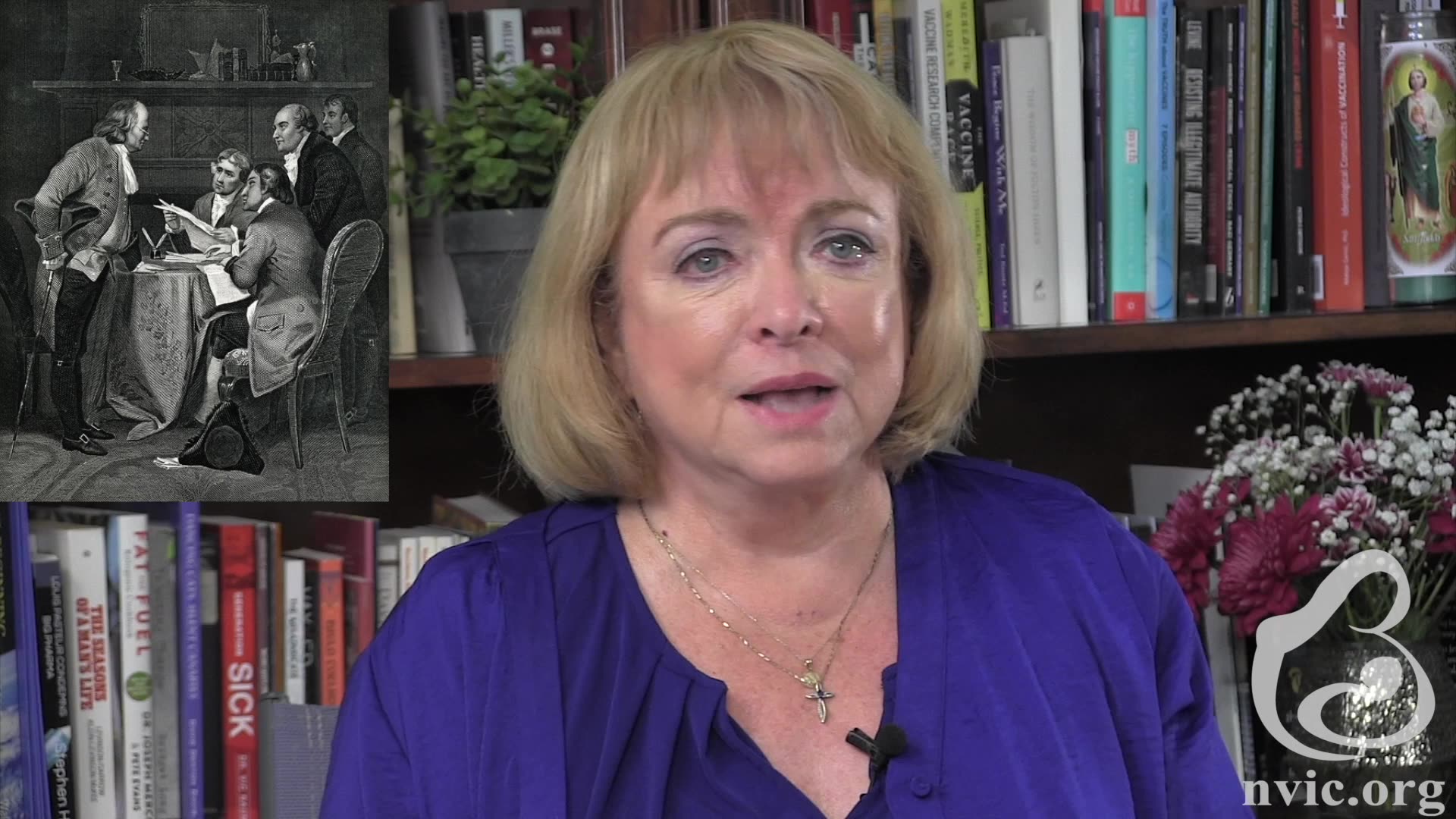Story Highlights
- Physician scientists are failing to disclose their financial ties to drug and health care companies in medical journals that publish scientific research widely considered to be reputable, and journals are failing to enforce disclosure requirements.
- The collaboration between the pharmaceutical industry and medical journals compromises public trust.
- These financial relationships between medical journals and the pharmaceutical industry call into question the credibility of scientific research used to make medical and government health policy.
Medical doctors conducting scientific research are not accurately disclosing their financial ties to pharmaceutical and health care companies when their studies are published in medical journals, according to a recent article published by ProPublica in collaboration with The New York Times.1
A number of these doctors are prominent figures in the medical field. One example is Howard A. “Skip” Burris III, MD the president-elect of the American Society of Clinical Oncology. Dr. Burris declared that he has no conflicts of interest in over fifty journal articles, including those articles in the prestigious New England Journal of Medicine.1 However, ProPublica reported that pharmaceutical companies paid his employer, Sarah Cannon Research Institute in Nashville, Tennessee approximately $114,000 for his speaking and consulting engagements and almost $8 million for his research during the time period when the disclosure of financial relationships and industry was required. One of those journals was the Journal of Clinical Oncology, published by the American Society of Clinical Oncology, the medical trade group he was elected to head.1
Another top breast cancer doctor, José Baselga, MD, the former chief medical officer at Memorial Sloan Kettering Cancer Center in New York and one of the editors-in-chief for the journal Cancer Discovery, failed to disclose conflict of interests with drug companies in numerous journal articles including articles in The Lancet and The New England Journal of Medicine.2 In September 2018, Dr. Baselga resigned from his position as the chief medical officer at Memorial Sloan Kettering Cancer Center after ProPublica and The New York Times reported that he failed to disclose his financial ties to drug companies.3 In response to public pressure, Baselga also resigned from his position as one of the editors-in-chief for Cancer Discovery.3
One doctor critical of physician scientists who fail to disclose their financial ties to drug companies, Jeffrey Botkin, MD, associate vice president for research at the University of Utah, authored a viewpoint in The Journal of the American Medical Association.4 He wrote, “They really are falsifying the information that others rely on to assess that research. Money is a very powerful influencer, and people’s opinions become subtly biased by that financial relationship.”4
In addition to identifying several other top physician scientists who failed to disclose conflicts of interest in medical journals, ProPublica reported that medical journals often give confusing advice and inconsistent rules on disclosing financial conflicts of interest and do not routinely vet the authors of the journal articles.1
Implications for Vaccine Related Research
It is no secret that relationships between the medical establishment and pharmaceutical companies involve significant financial entanglement that raises conflict of interest issues.5 In 2009, the Institute of Medicine published a report, Conflicts of Interest in Medical Research, Education and Practice, that pointed out flaws in the system of how study authors report conflicts of interests in medical journals and the influence of pharmaceutical industry money in medical education and practice.6 Financial incentives provided by drug companies have long influenced medical doctors to engage in inappropriate pharmaceutical product prescribing habits to promote the purchase and use of the sponsoring company’s prescription drugs, which calls into question the integrity and credibility of both medical doctors and drug companies.7
But this same type of relationship has also become very prominent between the pharmaceutical industry physician scientists (medical doctors who also conduct research in addition to being in clinical practice), which poses serious problems for the objectivity and integrity of published scientific research. The credibility of scientific research findings published in medical journals is even further compromised when scientists fail to disclose financial ties to the drug company paying for the research.
A significant amount of vaccine related research is now being conducted by physician scientists at prominent U.S. universities and medical institutions receiving both pharmaceutical industry money and NIH grants to develop and market vaccines.8 Professors and physician-scientists who conduct these studies can have personal financial relationships with vaccine manufacturers but, as pointed out in the article by ProPublica, a study author’s financial conflicts of interest with a pharmaceutical company may or may not be revealed in the original publication in which results of the scientific research is reported.1
Concerns have been voiced about the pharmaceutical industry’s lack of transparency with regard to the development and side effects of FDA licensed vaccines and drugs and financial relationships with medical doctors, who promote the use of those products. It is logical to ask whether the public can trust the conclusions of vaccine research conducted by physician-scientists heavily funded by vaccine manufacturers, who may also receive grants from government agencies developing and marketing vaccines, which may incentivize vaccine researchers to design and conduct research steered toward toward conclusions that align with the financial interests of industry and affirm the safety of and effectiveness of government vaccine use policy nad law.
The oligopoly of medical journal publishes dominating the reporting of scientific research also has important implications for the scientific and medical communities, as well as federal health agencies that rely upon the validity of scientific research to make medical and government policy. The autonomy of peer reviewed scientific research conducted by physician scientists in previous decades before consolidation of medical journal publishers owned by big corporations has gradually diminished.8
Corporate owned publishers have gained control over the type of scientific research and content that gets published in medical journals and this has led to a trend toward restricting published “science” to that which is both politically correct and favors the interests of the pharmaceutical and medical trade industries.9 Medical journals today tend to block publication of studies that provide evidence conflicting with government health policy, such as CDC vaccine use recommendations, in part due to legislation passed by Congress over the past four decades directing federal agencies to develop a strong public-private business partnership with the pharmaceutical industry.9 10
The recent investigative report by ProPublica confirms the legitimacy of published concerns about the financial collaboration between pharmaceutical companies, physician scientists and medical journal publishers, and the credibility of medical policy and public health laws, including vaccine policy and law, based on or influenced by scientific research published in medical journals.11
References:
1 Ornstein C, Thomas K. Prominent Doctors Aren’t Disclosing Their Industry Ties in Medical Journal Studies. And Journals Are Doing Little to Enforce Their Rules. ProPublica Dec. 8, 2018.
2 Ornstein C, Thomas K. Top Cancer Researcher Fails to Disclose Corporate Financial Ties in Major Research Journals. ProPublica Sept. 8, 2018.
3 Ornstein C, Thomas K. Top Cancer Doctor Resigns as Editor of Medical Journal. The New York Times Dec. 19, 2018.
4 Botkin J. Should Failure to Disclose Significant Financial Conflicts of Interest Be Considered Research Misconduct? JAMA 2018; 320(22): 2307-2308.
5 Moynihan R. Who pays for the pizza? Redefining the relationships between doctors and drug companies. 1: Entanglement. British Medical Journal 2003; 326.
6 Institute of Medicine. Conflicts of Interest in Medical Research, Education and Practice. The National Academies Press 2009.
7 Parpia R. Scientific Publishing Industry Has Become an Oligopoly. The Vaccine Reaction Sept. 10, 2015.
8 TVR Staff. How NIH Uses Tax Dollars to Secure Profits for Vaccine Developers and Manufacturers. The Vaccine Reaction May 2, 2018.
9 Fisher, BL. The 21st Century Cures Act: Say Goodbye to Vaccine Safety Science. The Vaccine Reaction Aug. 19, 2015.
10 Jefferson T, Di Pietrantonj C et al. Relation of study quality, concordance, take home message, funding and impact of studies of influenza vaccines: systematic review. BMJ 2009: 338.
11 Hitt E. Pharma Companies, Publishers Agree on Publishing Guidelines. Medscape May 10, 2012.













5 Responses
Well, surprise! How well does anyone think the public would feel about that knowing they push the drugs they’ve researched and had a monetary remuneration from? It’s not really something new; they’re just pushing their “pet” drugs harder on people these days than they could before they were allowed to advertise publicly. Most of today’s research conclusions are “bought and paid for”, rather than actual, empirical research and scientific conclusions.
If you were in court, what would you say? “Oops, I forgot? Sorry Your Honor?” This is called Lying by omission. Why? Clearly because there are things they want kept SECRET.
And the people should trust these orgs?
With a great eye and taste for delineation, you
possibly can make a breeding ground impeccable for virtually
any exercises linked with feasting room. If this is an issue of yours too, then you should learn in regards to the best strategies
to procure such things. The memorial also serves enormous events
from all areas of the globe.
Wanting more and needing more is hypocritical. Society has parents outraged at each other bc a child has not received a vaccine they feel is vital. Some parents have done their homework and know better for their child. It is hypocritical to demand shots for all children and after reading this article, the best interest lies in filling someone’s pocketbook.
The call for vaccine mandates by the New York Times and other publications in light of blatant and egregious conflicts of interest in pharmaceutical safety research is appalling. Yet most media fails to explore this issue and demonizes informed parents as selfish or stupid or both. How can Propublica help this situation? Also, I heard that Dr. Pan, the California state legislator behind the recently passed mandate bill, received the most Pharma contributions of anyone in the legislature. When you are forcing home schooling upon parents with legitimate concerns I think the media should look behind the curtain. People are mad but the press seeks mainly to discredit them. I am a lifelong Democrat by the way and disappointed in my party.